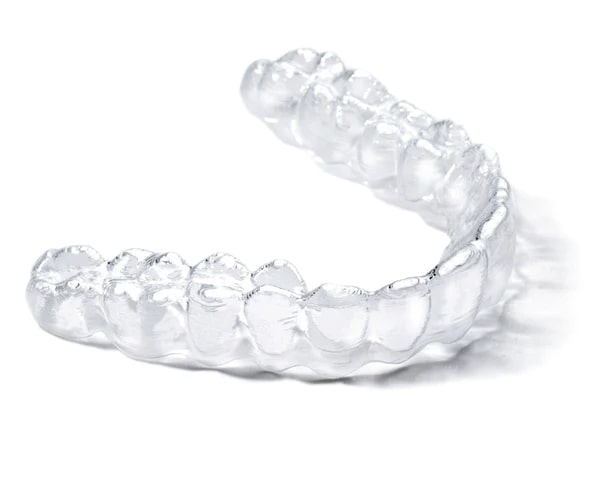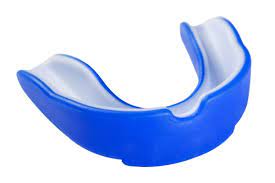Night Guard vs. Sports Guard: What You Need to Know
The Night Guard: A Solution for Teeth Grinding
A night guard can serve as an effective solution for bruxism, also called teeth grinding. Understanding its causes and solutions is crucial if you struggle with this issue.
What Is Bruxism?
Bruxism involves clenching, grinding, or gnashing your teeth, either during the day or while you sleep. Stress, anxiety, sleep disorders, and certain medications can trigger it. Using a custom mouthguard can help alleviate the symptoms.
While occasional teeth grinding is harmless, chronic bruxism can damage teeth and lead to other health complications. Recognizing the signs and seeking regular dental care is essential, especially since sleep bruxism can go unnoticed until more serious issues arise.
Types of Bruxism
- Awake Bruxism: This occurs when you’re clenching your teeth while awake, often due to stress, anxiety, or intense concentration.
- Sleep Bruxism: This occurs during sleep and is often associated with other sleep disorders, such as snoring or sleep apnea.

Symptoms of Bruxism
Common symptoms include:
Morning headaches or facial pain
Earaches
Sore jaw muscles
Tinnitus (ringing in the ears)
Difficulty opening and closing your mouth
Tooth pain or sensitivity
Jaw, neck, or face pain
Sleep disruption
Audible teeth-grinding
Flattened, chipped, or loose teeth
Worn tooth enamel
If you experience any of these symptoms, it’s important to consult a dentist promptly. Untreated bruxism can lead to severe dental damage, TMJ disorder, and facial pain.
Treatment for Teeth Grinding
The first step in treating bruxism is identifying the underlying cause. Your doctor or dentist will assess your lifestyle, medications, and sleep habits to determine the best action.
Common Treatments:
- Mouth Guard:A dentist can create a personalized mouth guard to shield your teeth during sleep. These guards are typically made of plastic, so inform your dentist if you have a latex allergy.
- Dental Correction:Some dentists may attempt to correct your bite if your teeth don’t align properly. However, the effectiveness of this approach for treating bruxism needs to be better supported by evidence.
It’s important to choose your treatment based on the cause of your bruxism. For example, counseling with a psychologist might be beneficial if stress is the primary trigger. Meanwhile, using a night guard can protect your teeth while you address the underlying issues.
Note:A custom-fitted dental night guard is highly recommended for patients with dental implants who suffer from bruxism.
What Is a Night Guard?
A night guard is a protective appliance placed over the teeth and gums to prevent injuries and minimize damage caused by teeth grinding. It is typically worn at night to prevent teeth grinding during sleep.
Night guards serve multiple purposes, from treating bruxism to preventing sports-related dental injuries. They can be store-bought or custom-made by a dentist.
How Night Guards Help
The main function of a night guard is to separate your top and bottom teeth, preventing damage from grinding or clenching. Most night guards fit over the upper teeth, but a dentist may recommend one for the lower teeth in some cases.
Reasons to Use a Mouth Guard
Dentists may recommend mouthguards for various reasons, including:
- Teeth grinding or clenching (bruxism)
- Playing contact sports (e.g., football, basketball, hockey)
- Activities with a high risk of falls (e.g., gymnastics, biking)
- Snoring
- Obstructive sleep apnea
- TMJ disorder
What Is a Sports Guard?
A sports guard, also known as a mouth guard, is a device used in sports to protect the teeth, gums, and jaw from injury. They are essential in contact sports such as football, hockey, and boxing, but they are also recommended for any activity with a risk of mouth injury.
Sports guards can be store-bought or custom-made by a dentist for a better fit. The primary function is to absorb and distribute the force of an impact, thereby reducing the risk of broken teeth, jaw injuries, and damage to the mouth’s soft tissues.
Types of Sports Guards
- Stock Mouth Guards: These are pre-formed and ready to wear. They are inexpensive but often need to fit better and can be bulky, making breathing and talking difficult.
- Boil and Bite Mouth Guards: Made from thermoplastic material, these mouthguards are softened in hot water and then shaped around the teeth using finger and tongue pressure.
- Custom-Fitted Mouth Guards: These are made by a dentist to fit precisely over your teeth. They offer the best protection and comfort but are more expensive.
Wearing and Maintaining Your Night Guard
Frequency of Use:
- For contact sports, wear your mouthguard during all practices and games.
- Wear it every night for bruxism, snoring, or sleep apnea.
Benefits:
- Protects against chipped or knocked-out teeth
- Prevents damage to tooth pulp
- Reduces soft-tissue injuries to gums, lips, and cheeks
- Minimizes wear and tear from teeth-grinding
- Helps with snoring and sleep apnea
- Alleviates symptoms of TMJ disorder

How to Clean a Night Guard
- Clean your night guard by brushing it with a toothbrush and toothpaste.
- Rinse with warm water.
- Use an antimicrobial solution provided by your dentist for soaking.
- Store in a ventilated case to prevent bacterial growth.
When to Replace Your Night Guard?
- Replace your night guard when it shows signs of wear, such as roughness or cracks.
- These imperfections can harbor bacteria and cause gum damage.
- Consult your dentist for replacement advice.
Conclusion: Protecting Your Dental Health
Whether you experience teeth grinding or engage in contact sports, using a night guard or sports guard is crucial for safeguarding your dental health. Understanding these protective devices’ advantages and proper care can help you avoid dental injuries and manage associated health concerns. Be sure to seek personalized advice and treatment options from your dentist tailored to your needs. In this regard, you can use the consultation services at our downtown Toronto dentist office.
